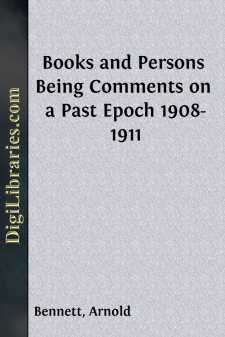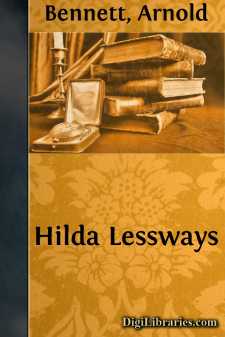Categories
- Antiques & Collectibles 13
- Architecture 36
- Art 48
- Bibles 22
- Biography & Autobiography 816
- Body, Mind & Spirit 145
- Business & Economics 28
- Children's Books 17
- Children's Fiction 14
- Computers 4
- Cooking 94
- Crafts & Hobbies 4
- Drama 346
- Education 58
- Family & Relationships 59
- Fiction 11834
- Foreign Language Study 3
- Games 19
- Gardening 17
- Health & Fitness 34
- History 1378
- House & Home 1
- Humor 147
- Juvenile Fiction 1873
- Juvenile Nonfiction 202
- Language Arts & Disciplines 89
- Law 16
- Literary Collections 686
- Literary Criticism 179
- Mathematics 13
- Medical 41
- Music 40
- Nature 179
- Non-Classifiable 1768
- Performing Arts 7
- Periodicals 1453
- Philosophy 66
- Photography 2
- Poetry 897
- Political Science 203
- Psychology 45
- Reference 154
- Religion 516
- Science 126
- Self-Help 85
- Social Science 82
- Sports & Recreation 34
- Study Aids 3
- Technology & Engineering 59
- Transportation 23
- Travel 463
- True Crime 29
Arnold Bennett
Arnold Bennett was a prolific English writer born on May 27, 1867, in Hanley, Staffordshire. He is best known for his novels set in the Potteries, a region in Staffordshire, such as "The Old Wives' Tale" and "Clayhanger," which provide a vivid depiction of life in the industrial towns of that era. Bennett's works were influential in the early 20th century, earning him a prominent place in English literature, and he was also a notable journalist and playwright.
Author's Books:
Sort by:
by:
Arnold Bennett
WILFRED WHITTEN'S PROSE 4 Apr. '08 An important book on an important town is to be issued by Messrs. Methuen. The town is London, and the author Mr. Wilfred Whitten, known to journalism as John o' London. Considering that he comes from Newcastle-on-Tyne (or thereabouts), his pseudonym seems to stretch a point. However, Mr. Whitten is now acknowledged as one of the foremost experts in...
more...
by:
Arnold Bennett
CHAPTER I The Puce Dressing-gown The peculiar angle of the earth's axis to the plane of the ecliptic--that angle which is chiefly responsible for our geography and therefore for our history--had caused the phenomenon known in London as summer. The whizzing globe happened to have turned its most civilized face away from the sun, thus producing night in Selwood Terrace, South Kensington. In No. 91...
more...
by:
Arnold Bennett
PART I SEEING LIFE A young dog, inexperienced, sadly lacking in even primary education, ambles and frisks along the footpath of Fulham Road, near the mysterious gates of a Marist convent. He is a large puppy, on the way to be a dog of much dignity, but at present he has little to recommend him but that gawky elegance, and that bounding gratitude for the gift of life, which distinguish the normal puppy....
more...
by:
Arnold Bennett
CHAPTER I MY SPLENDID COUSIN I am eight years older now. It had never occurred to me that I am advancing in life and experience until, in setting myself to recall the various details of the affair, I suddenly remembered my timid confusion before the haughty mien of the clerk at Keith Prowse's. I had asked him: "Have you any amphitheatre seats for the Opera to-night?" He did not reply. He...
more...
by:
Arnold Bennett
ACT I SCENE I Front room on ground floor at 126 Redcliffe Gardens. An apartment furnished richly but in an old-fashioned way. Fine pictures. Large furniture. Sofa near centre. General air of neglect and dustiness. Carpet half-laid. Trunks and bags lying about in corners, some opened. Men's wearing apparel exposed. Mantelpiece, R., in disorder. At back double doors (ajar) leading to another room....
more...
by:
Arnold Bennett
CHAPTER I BEGINNING OF THE IDYLL In the Five Towns human nature is reported to be so hard that you can break stones on it. Yet sometimes it softens, and then we have one of our rare idylls of which we are very proud, while pretending not to be. The soft and delicate South would possibly not esteem highly our idylls, as such. Nevertheless they are our idylls, idyllic for us, and reminding us, by certain...
more...
by:
Arnold Bennett
CHAPTER IAN EVENT IN MR. SKELLORN'S LIFE I The Lessways household, consisting of Hilda and her widowed mother, was temporarily without a servant. Hilda hated domestic work, and because she hated it she often did it passionately and thoroughly. That afternoon, as she emerged from the kitchen, her dark, defiant face was full of grim satisfaction in the fact that she had left a kitchen polished and...
more...
by:
Arnold Bennett
THE FIRST NIGHT I sat with a melting ice on my plate, and my gaze on a very distant swinging door, through which came and went every figure except the familiar figure I desired. The figure of a woman came. She wore a pale-blue dress and a white apron and cap, and carried a dish in uplifted hands, with the gesture of an acolyte. On the bib of the apron were two red marks, and as she approached,...
more...
by:
Arnold Bennett
I There are men who are capable of loving a machine more deeply than they can love a woman. They are among the happiest men on earth. This is not a sneer meanly shot from cover at women. It is simply a statement of notorious fact. Men who worry themselves to distraction over the perfecting of a machine are indubitably blessed beyond their kind. Most of us have known such men. Yesterday they were...
more...
by:
Arnold Bennett
THE DOME He wakened from a charming dream, in which the hat had played a conspicuous part. 'I shouldn't mind having that hat,' he murmured. A darkness which no eye could penetrate surrounded him as he lay in bed. Absolute obscurity was essential to the repose of that singular brain, and he had perfected arrangements for supplying the deficiencies of Nature's night. He touched a...
more...











